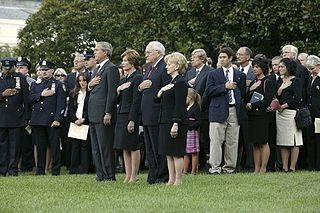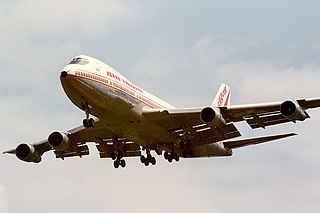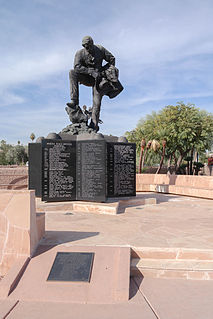Related Research Articles

Victimology is the study of victimization, including the psychological effects on victims, relationships between victims and offenders, the interactions between victims and the criminal justice system—that is, the police and courts, and corrections officials—and the connections between victims and other social groups and institutions, such as the media, businesses, and social movements.
Environment and Climate Change Canada is the department of the Government of Canada responsible for coordinating environmental policies and programs, as well as preserving and enhancing the natural environment and renewable resources. It is also known as Environment Canada (EC).
A violent crime, violent felony, crime of violence or crime of a violent nature is a crime in which an offender or perpetrator uses or threatens to use harmful force upon a victim. This entails both crimes in which the violent act is the objective, such as murder, assault, rape and assassination, as well as crimes in which violence is used as a method of coercion or show of force, such as robbery, extortion and terrorism. Violent crimes may, or may not, be committed with weapons. Depending on the jurisdiction, violent crimes may regarded with varying severities from homicide to harassment.

In the United States, Patriot Day occurs on September 11 of each year in memory of the people killed in the September 11 attacks of the year 2001.

The Canadian Security Intelligence Service is Canada's primary national intelligence service. It is responsible for collecting, analysing, reporting and disseminating intelligence on threats to Canada's national security, and conducting operations, covert and overt, within Canada and abroad. It also reports to and advises the Minister of Public Safety on national security issues and situations that threaten the security of the nation.

The Australian Federal Police (AFP) is the national and principal federal law enforcement agency of the Australian Government with the unique role of investigating crime and protecting the national security of the Commonwealth of Australia. The AFP is an independent agency of the Department of Home Affairs and is responsible to the minister for home affairs and accountable to the Parliament of Australia. As of October 2019 the commissioner of the Australian Federal Police is Reece Kershaw, formerly the Northern Territory Police Commissioner.

Air India Flight 182 was an Air India flight operating on the Montreal–London–Delhi route. On 23 June 1985 it was operated using Boeing 747-237B registered VT-EFO. It disintegrated in midair en route from Montreal to London, at an altitude of 31,000 feet (9,400 m) over the Atlantic Ocean, as a result of the explosion from a bomb planted by Canadian Sikh militants. The remnants of the airliner fell into the ocean approximately 190 kilometres west-southwest of the southwest tip of Ireland, killing all aboard: 329 people, including 268 Canadian citizens, 27 British citizens and 24 Indian citizens. The bombing of Air India Flight 182 is the largest mass killing in Canadian history, the deadliest aviation incident in the history of Air India and was the deadliest act of aviation terrorism until the September 11 attacks in 2001. The Babbar Khalsa terror group was implicated in the bombings.
The Canada Revenue Agency is the revenue service of the Government of Canada. The CRA collects taxes, administers tax law and policy, and delivers benefit programs and tax credits for the federal government and most provincial and territorial governments. Legislation administered by the CRA includes the Income Tax Act, parts of the Excise Tax Act, and laws relating to the Canada Pension Plan, employment insurance (EI), softwood lumber, and tobacco. The Agency also oversees the registration of charities in Canada, and ensures their compliance with tax and common law.
Immigration, Refugees and Citizenship Canada is the department of the Government of Canada with responsibility for matters dealing with immigration to Canada, refugees, and Canadian citizenship. The department was established in 1994 following a reorganization.
Overall, there is a low rate of crime in Canada. Under the Canadian constitution, the power to establish criminal law and rules of investigation is vested in the federal Parliament. The provinces share responsibility for law enforcement, and while the power to prosecute criminal offences is assigned to the federal government, responsibility for prosecutions is delegated to the provinces for most types of criminal offences. Laws and sentencing guidelines are uniform throughout the country, but provinces vary in their level of enforcement.
Public holidays in Canada, known as statutory holidays, stat holidays, or simply stats, consist of a variety of cultural, nationalistic, and religious holidays that are legislated in Canada at the federal or provincial and territorial levels. While many of these holidays are honoured and acknowledged nationwide, provincial and territorial legislation varies in regard to which are officially recognized.
Terrorism and mass attacks in Canada includes acts of terrorism, as well as mass shootings, vehicle-ramming attacks, mass stabbings, and other such acts committed in Canada that people may associate with terroristic tactics but have not been classified as terrorism by the Canadian legal system.
Public Safety Canada, legally incorporated as the Department of Public Safety and Emergency Preparedness (PSEPC), is the department of the Government of Canada responsible for (most) matters of public safety, emergency management, national security, and emergency preparedness in Canada.

Half-mast or half-staff refers to a flag flying below the summit of a ship mast, a pole on land, or a pole on a building. In many countries this is seen as a symbol of respect, mourning, distress, or, in some cases, a salute. Most English-speaking countries use the term half-mast in all instances. In the United States, this refers officially only to flags flown on ships, with half-staff used on land.
Tara Singh Hayer, OBC was a Indo-Canadian Sikh newspaper publisher and editor who was murdered after his outspoken criticism of fundamentalist violence and terrorism. In particular, he was a key witness in the trial of the Air India Flight 182 bombing.

The Access to Information Act or Information Act is a Canadian Act providing the right of access to information under the control of a federal government institution. As of 2020, the Act allowed "people who pay $5 to request an array of federal files". Paragraph 2. (1) of the Act ("Purpose") declares that government information should be available to the public, but with necessary exceptions to the right of access that should be limited and specific, and that decisions on the disclosure of government information should be reviewed independently of government. Later paragraphs assign responsibility for this review to an Information Commissioner, who reports directly to parliament rather than the government in power. However, the Act provides the commissioner the power only to recommend rather than compel the release of requested information that the commissioner judges to be not subject to any exception specified in the Act.

Peace Officers Memorial Day and Police Week is an observance in the United States that pays tribute to the local, state, and federal peace officers who have died, or who have been disabled, in the line of duty. It is celebrated May 15th of each year. The event is sponsored by the National Fraternal Order of Police (FOP) and is implemented by the FOP Memorial Committee.
The Financial Transactions and Reports Analysis Centre of Canada is the national financial intelligence agency of Canada. FINTRAC was established in 2000 under the Proceeds of Crime Act to facilitate detection and investigation of money laundering, FINTRAC's mandate was expanded in December 2001 following amendments to the Proceeds of Crime Act to also disclose financial intelligence to other Canadian intelligence and law enforcement agencies with respect to suspected terrorist financing. FINTRAC's mandate was further expanded in 2006 under Bill C-25 to enhance the client identification, record-keeping and reporting measures, established a registration regime for money services businesses and foreign exchange dealers, and created new offences for not registering.

The Black Ribbon Day, officially known in the European Union as the Europe-wide Day of Remembrance for the victims of all totalitarian and authoritarian regimes, is an international day of remembrance for victims of totalitarian regimes, specifically Stalinist, communist, Nazi and fascist regimes. Formally recognised by the European Union, the Organization for Security and Co-operation in Europe and some other countries, it is observed on 23 August. It symbolises the rejection of "extremism, intolerance and oppression" according to the European Union. The purpose of the Day of Remembrance is to preserve the memory of the victims of mass deportations and exterminations, while promoting democratic values to reinforce peace and stability in Europe. It is one of the two official remembrance days or observances of the European Union, alongside Europe Day. Under the name Black Ribbon Day it is also an official remembrance day of Canada, the United States and other countries. The European Union has used both names alongside each other.
Organizations designated as terrorist by Canada are groups that have been listed by the Canadian government as terrorist organisations.
References
- 1 2 Canada, Employment and Social Development (2011-06-23). "National Day of Remembrance for Victims of Terrorism". www.canada.ca. Retrieved 2021-05-25.
- ↑ "National Day of Remembrance for Victims of Terrorism". Canadian Resource Centre for Victims of Crime. June 23, 2016.
- ↑ National Day of Remembrance for Victims of Terrorism – Ceremony at the Air India Flight 182 Memorial on YouTube
- ↑ "Proclamation Requesting the People of Canada to Observe June 23 of Every Year as a National Day of Remembrance for Victims of Terrorism". Laws-lois.justice.gc.ca. 22 March 2006. Retrieved 2012-03-19.
- ↑ Branch, Legislative Services (2006-03-22). "Consolidated federal laws of canada, Proclamation Requesting the People of Canada to Observe June 23 of Every Year as a National Day of Remembrance for Victims of Terrorism". laws-lois.justice.gc.ca. Retrieved 2021-05-25.
- ↑ Crime, Office of the Federal Ombudsman for Victims of (2018). "Home: Federal Ombudsman for Victims of Crime". www.victimsfirst.gc.ca. Retrieved 2021-05-25.